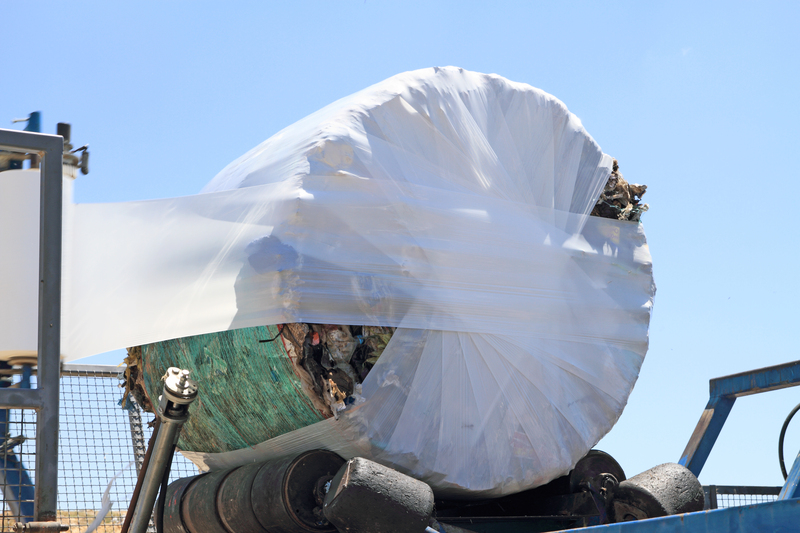The Potential of Plant-Based Plastics
Posted on 30/08/2025
The Potential of Plant-Based Plastics
Plastic pollution has become a severe environmental issue, leading scientists and innovators to search for sustainable alternatives. Among these alternatives, plant-based plastics have emerged as a promising solution. Derived from renewable sources such as corn, sugarcane, or other plant materials, plant-based plastics offer a sustainable option to conventional plastics made from petroleum. In this article, we explore the potential of plant-based plastics, delving into their benefits, challenges, and future prospects.
What are Plant-Based Plastics?
Plant-based plastics, also known as bioplastics, are materials derived from biomass sources like plants. Unlike traditional plastics, which are produced from non-renewable petroleum, plant-based plastics are made from renewable biological sources. These materials can be designed to degrade more quickly in the environment, reducing the long-term pollution associated with traditional plastics.

Types of Plant-Based Plastics
1. **Polylactic Acid (PLA)**: PLA is one of the most commonly used bioplastics, derived from fermented plant starch (usually corn). PLA is used in various products, from packaging to disposable utensils.
2. **Polyhydroxyalkanoates (PHA)**: PHAs are produced by microorganisms that consume plant sugars. They are highly biodegradable and are used in applications ranging from medical devices to packaging.
3. **Starch Blends**: These are made by blending starch with other biodegradable polymers. They are often used in disposable items and packaging materials.
Advantages of Plant-Based Plastics
1. **Renewable Resources**: Plant-based plastics are derived from renewable sources, reducing dependence on fossil fuels.
2. **Reduction in Carbon Footprint**: The production of bioplastics typically results in lower greenhouse gas emissions compared to traditional plastics.
3. **Biodegradability**: Many plant-based plastics are designed to biodegrade more rapidly, reducing long-term environmental impact.
4. **Versatility**: Plant-based plastics can be used in a variety of applications, from packaging to automotive parts and medical devices.
Challenges Facing Plant-Based Plastics
1. **Cost**: Currently, the production of plant-based plastics can be more expensive than traditional plastics due to the technology and processes involved.
2. **Performance**: Some bioplastics may not yet match the durability and versatility of conventional plastics.
3. **Agricultural Impact**: The production of plant-based plastics can sometimes lead to land use changes, affecting food production and biodiversity.
4. **Recycling Challenges**: Not all bioplastics are compatible with existing plastic recycling systems, which can create confusion and inefficiencies.
Future Prospects
Despite the challenges, the future of plant-based plastics looks promising. Advances in technology and increased investment in sustainable materials are likely to drive down costs and improve the performance of bioplastics. Additionally, growing consumer awareness and demand for eco-friendly products will further boost the development and adoption of plant-based plastics.
Pros and Cons of Plant-Based Plastics
**Pros:**
- Renewable resources
- Lower greenhouse gas emissions
- Potential for biodegradability
- Reduces dependence on fossil fuels
**Cons:**
- Higher production costs
- Performance limitations in some applications
- Potential impact on agriculture and food production
- Recycling challenges
Tips for Consumers
1. **Educate Yourself**: Learn about the types of plant-based plastics and their applications.
2. **Check Labels**: Look for products labeled as biodegradable or compostable.
3. **Support Sustainable Brands**: Choose brands that use plant-based plastics and demonstrate a commitment to sustainability.
4. **Proper Disposal**: Ensure that plant-based plastic products are disposed of according to the manufacturer's recommendations, whether that be through composting or recycling.

Takeaways
Plant-based plastics offer a promising alternative to traditional plastics, providing several environmental benefits including the use of renewable resources and reduced carbon emissions. However, there are still challenges to overcome, such as high production costs and performance limitations. Consumers play a crucial role in driving demand for these sustainable materials by supporting eco-friendly products and educating themselves about proper disposal methods.
Conclusion
The potential of plant-based plastics lies in their ability to offer an environmentally friendly alternative to conventional plastics. With continued advancements in technology, increased consumer demand, and supportive policies, plant-based plastics could significantly reduce plastic pollution and mitigate the environmental impact of plastic waste. While challenges remain, the future of bioplastics is bright, promising a more sustainable world for future generations.
Latest Posts
From Eyesore to Masterpiece: When Garbage Becomes Art
Industry welcomes government's move towards increased e-waste recycling

 020 8610 9486
020 8610 9486










